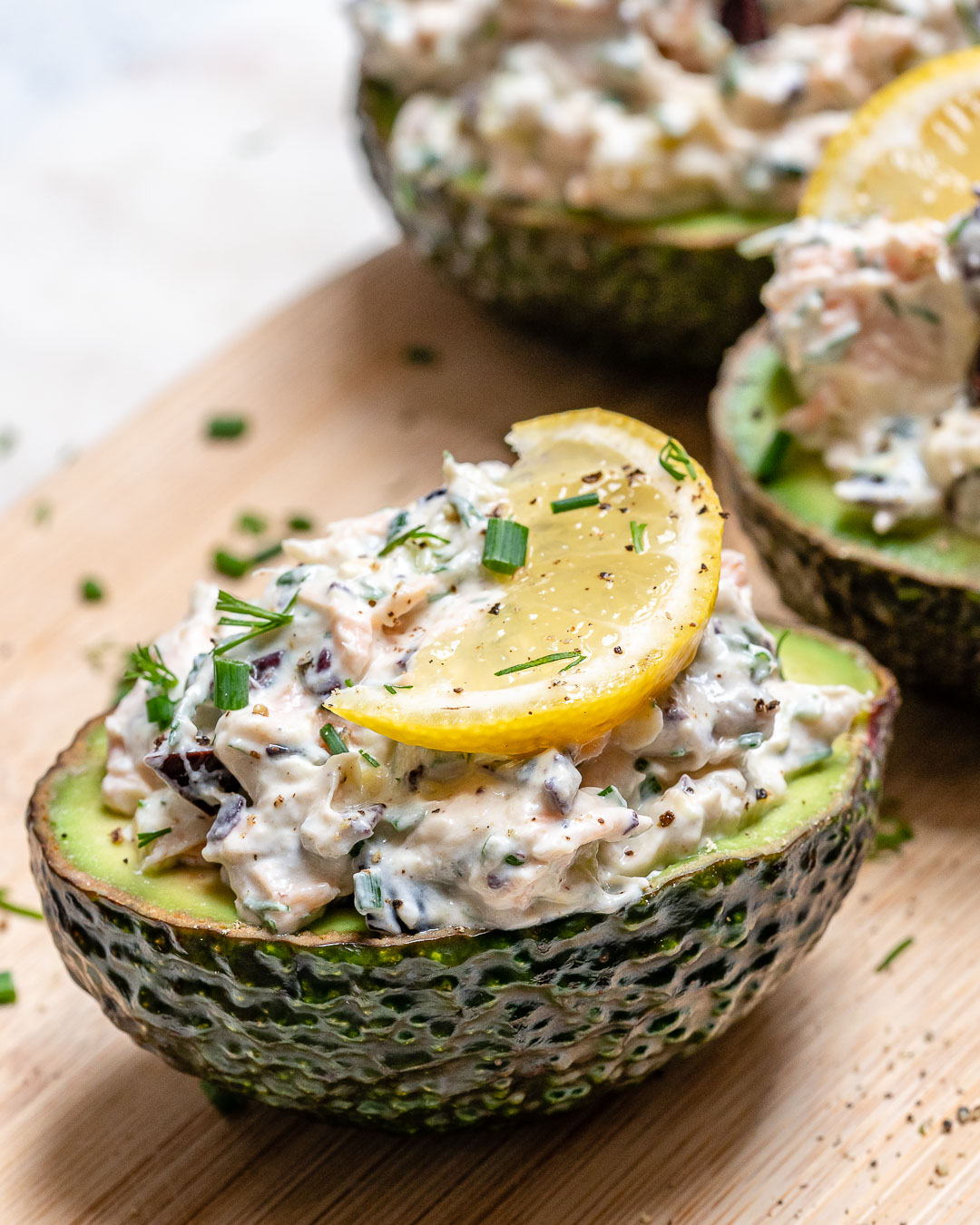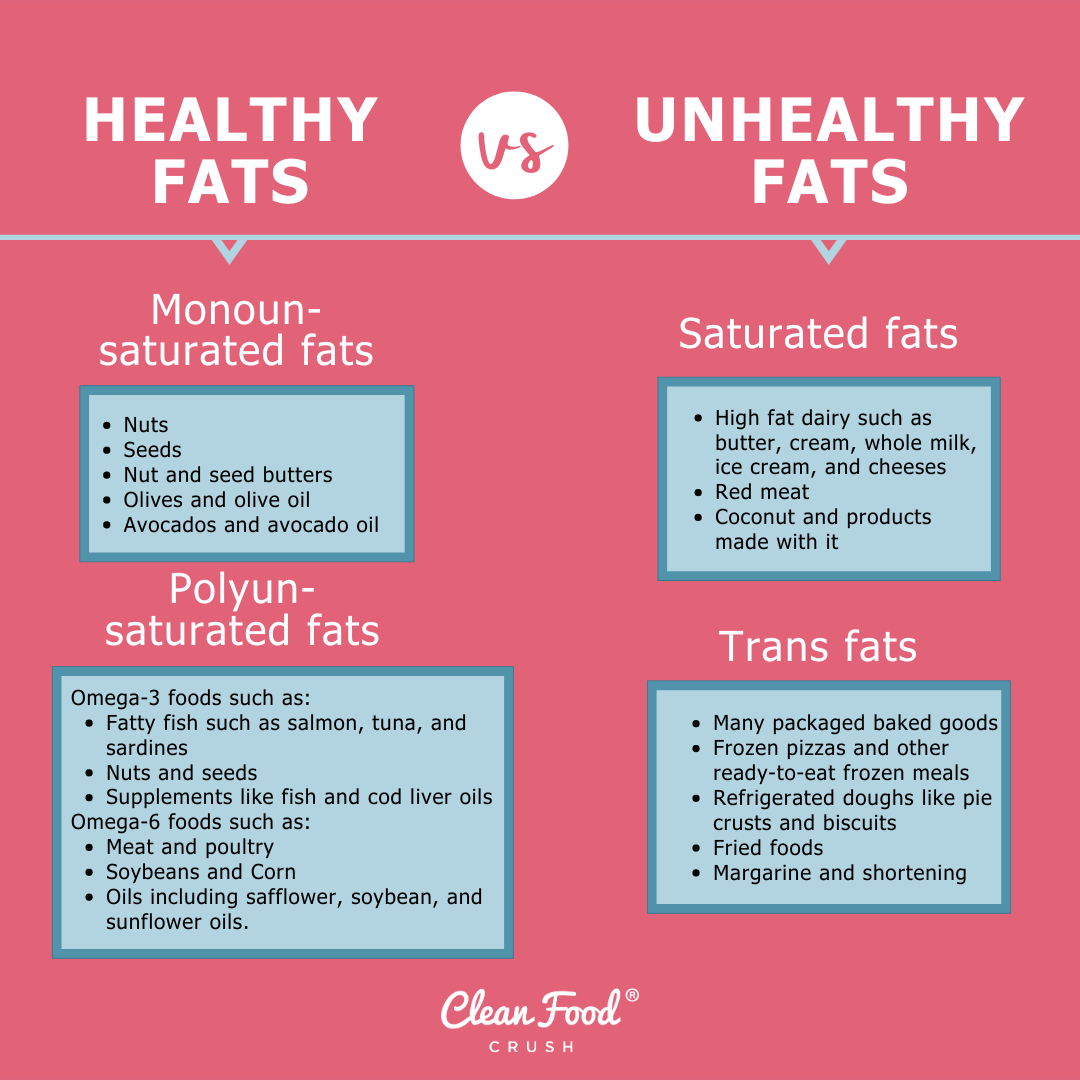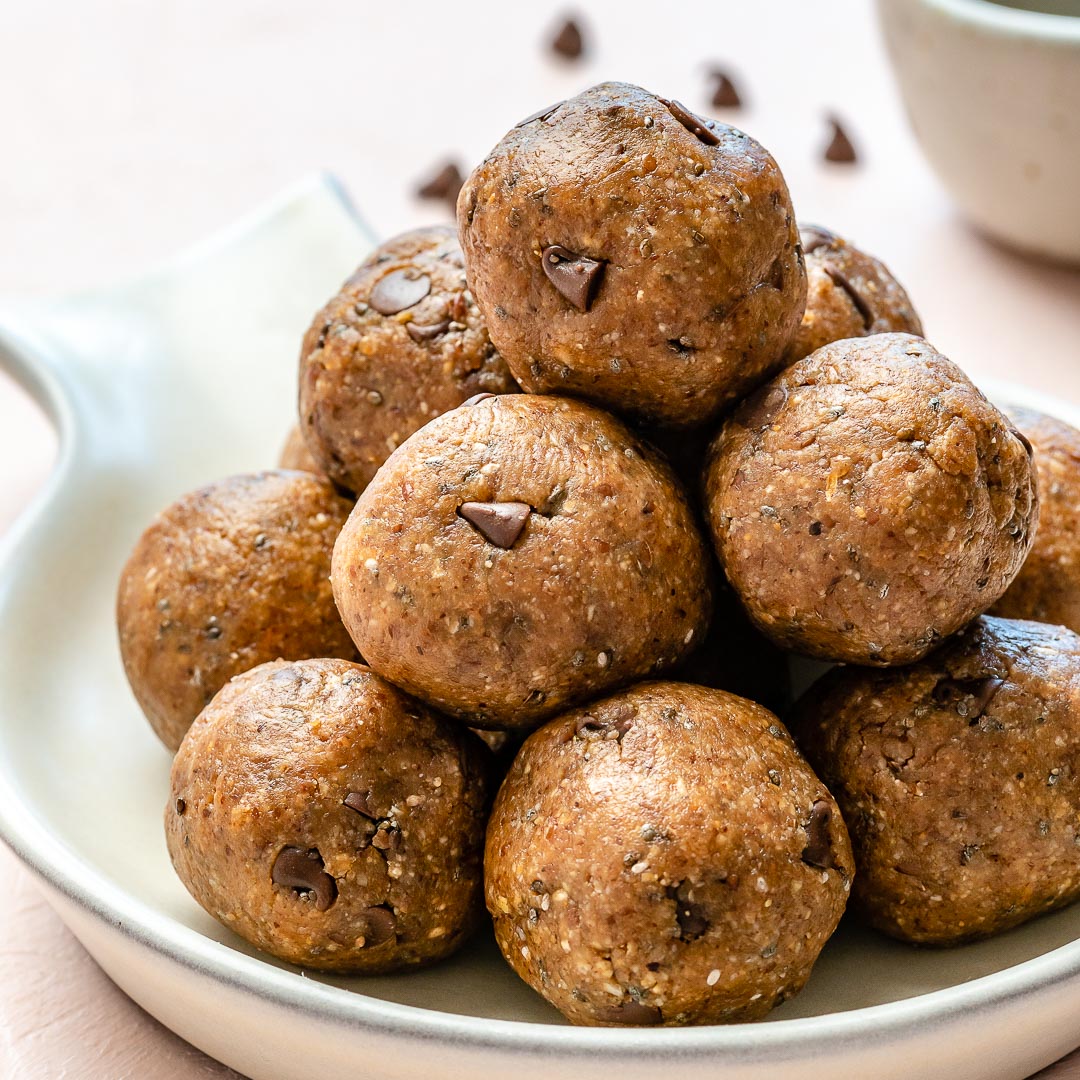Healthy vs Unhealthy Fats – What’s the Difference?
Dietary fat has received a bad reputation for many years. You might remember the low-fat craze of the eighties and nineties that led people to be limiting fat in their diets as much as possible and eating mostly tasteless carbohydrates instead. Thankfully, as new science has emerged, it has become more widely known that not all fats are created equally, and that they need not all be feared or avoided in the way that they once were.
This post will help you learn to distinguish between the healthiest and not-so-healthy types of dietary fats and teach you what to look for to make sure you’re gaining the most health benefits from this important macronutrient.

Why are fats important?
Before we dive into the different types of fats, it’s important to first make sure you understand why it is important to eat fats in the first place.
Fats are one of the three main macronutrients found in foods, with the other two being protein and carbohydrates. They are essential in the diet and serve many important functions, including:
- Providing energy to the body, and storing it for later use
- Insulating and protecting vital organs
- Helping with the absorption of the fat-soluble vitamins A, D, E, & K
- Guiding the inflammatory process in the body
- Producing many hormones
- Promoting satiety, which helps control appetite and manage weight
Fats can and should be part of a healthy, balanced diet. Even though they contain the most calories per gram when compared to protein and carbohydrates, eating fat does not automatically lead to weight gain or cause damage to health. It’s the type of fat, not the amount, that matters most when it comes to protecting your body and promoting your best health.
Best and Worst Types of Fat
As mentioned, not all fats are created equally. The four main types of fats are:
- Saturated fats
- Trans fats
- Monounsaturated fats
- Polyunsaturated fats
Each of these types of fat has a different chemical structure and properties and therefore has a different impact in the body.

Healthiest Types of Fat
Monounsaturated and polyunsaturated fats are known to be the healthiest types of fat. Because of this, the 2015-2020 Dietary Guidelines for Americans suggests replacing saturated fats with unsaturated fats to help reduce risk of cardiovascular disease.
Monounsaturated fats protect the body by helping to lower LDL and total cholesterol levels, which supports heart health, supporting normal blood pressure levels, and helping to improve insulin sensitivity and blood sugar levels when they replace saturated fats and/or carbohydrates in the diet.
Food sources of monounsaturated fats include:
- Nuts
- Seeds
- Nut and seed butters
- Olives and olive oil
- Avocados and avocado oil
Polyunsaturated fats include omega-3 and omega-6 fatty acids, which are essential fats that must be obtained in the diet. Each plays a role in balancing levels of inflammation in the body. Omega-3 fatty acids are anti-inflammatory and have been shown to help manage or reduce risk of many inflammatory diseases, including arthritis, diabetes, obesity, allergies, and more. Omega-3 fats also play important roles in promoting normal brain and nerve function and lowering triglyceride levels in the blood, which supports heart health.

These Salmon Stuffed Avocados Will Leave You Energized And Satisfied!
Omega-6 fats support the structure of cell membranes and provide an important source of energy. However, omega-6 fats are more inflammation producing than omega-3’s, and eating too many of them has the potential to contribute to disease. Therefore, it is very important to consume a variety of both sources to help keep the ratio of omega-3 to omega-6 fats balanced in the diet.
Food sources of polyunsaturated fats include:
- Omega-3:
- Fatty fish such as salmon, tuna, and sardines
- Nuts and seeds including walnuts, chia, hemp, and flax seeds
- Supplements like fish and cod liver oils
- Omega-6:
- Nuts and seeds
- Meat and poultry
- Soybeans
- Corn
- Oils including safflower, soybean, and sunflower oils.

Unhealthy Types of Fat
Trans and saturated fats are the less healthy types of fats and are linked to many negative health impacts including higher levels of inflammation in the body as well as increased risk of heart disease.
Trans fats are the most dangerous to health, so much so that the Food and Drug Administration (FDA) required them to be removed from the processed food supply by January 2020. However, foods that contain less than 0.5g per serving are still allowed to be claimed as zero grams of trans fats on a nutrition label, so consumption of these fats is still possible. Trans fats can be identified on an ingredients list by the words “partially hydrogenated oil”, so it is very important to read labels to help avoid eating these fats. Highly processed foods are the most likely to contain trans fats.
Food sources of trans fats may include:
- Many packaged baked goods
- Frozen pizzas and other ready-to-eat frozen meals
- Refrigerated doughs like pie crusts and biscuits
- Fried foods
- Margarine and shortening
Saturated fats are the other less healthy type of fat, and have been the subject of much research and debate in recent decades regarding their impact on heart disease risk. Some studies show that eating saturated fats from plant sources such as coconut products may not be as harmful to the body as those from animal sources, and may actually improve cholesterol ratios. However, because the research is still mixed, it is best to limit the amount of saturated fat consumed from all sources. The American Heart Association still recommends limiting saturated fat to no more than 5 to 6 percent of total daily calories.

Try these Nut Butter Chocolate Chip Energy Balls for Healthy Fats on the Go!
Food sources of saturated fat include:
- High fat dairy such as butter, cream, whole milk, ice cream, and cheeses
- Red meat
- Coconut and products made with it

Tips for Incorporating Healthy Fats Into Your Diet
With so many food sources of healthy fats, there are a variety of ways to incorporate them into your diet. Some ideas include:
- Adding avocado to salads, toast, sandwiches, smoothies, soups, and mexican foods
- Using olive and/or avocado oils in cooking or as a dressing (for more information about the best cooking oils to use, check out this post)
- Using nuts, seeds, and the butters made from them in things like oatmeal, toast, smoothies, salads, as a spread for fruit, etc, or just snacking on them plain
- Eating fatty fish a few times a week
- Taking fish or cod liver oil supplements on a daily basis
In Summary
Different types of fat play different roles in the body. The healthiest sources come from unsaturated fats and are important to include in the diet on a daily basis. Saturated fats are okay to include in the diet in small amounts, but trans fats should be avoided at all costs for best health. By understanding the differences, you can take action in your diet to make sure you are consuming the right types and further supporting your health.

from Clean Food Crush https://ift.tt/3dPbFNI



No comments:
Post a Comment